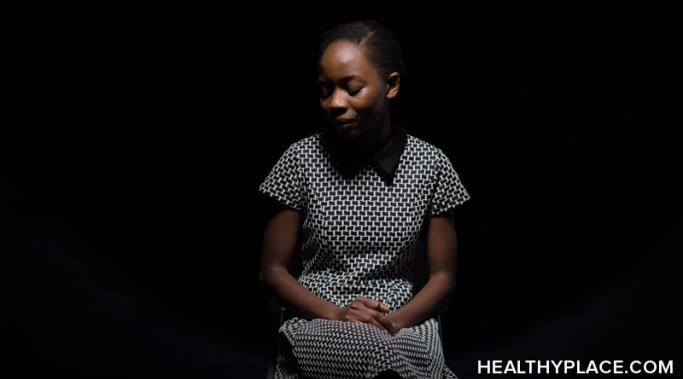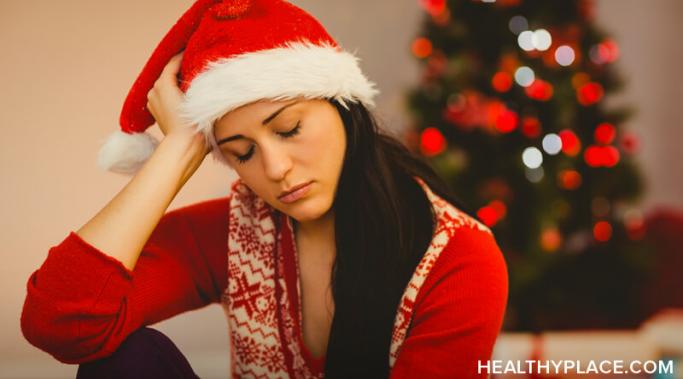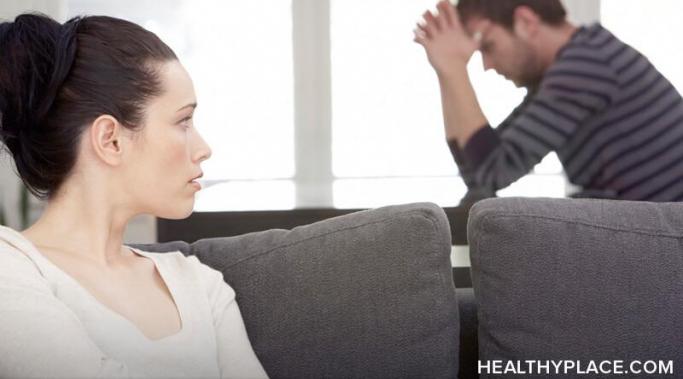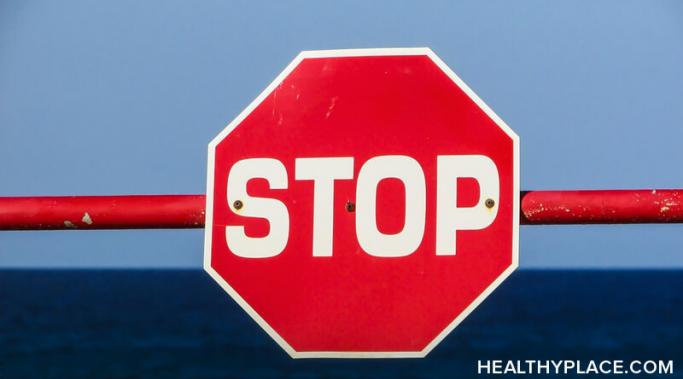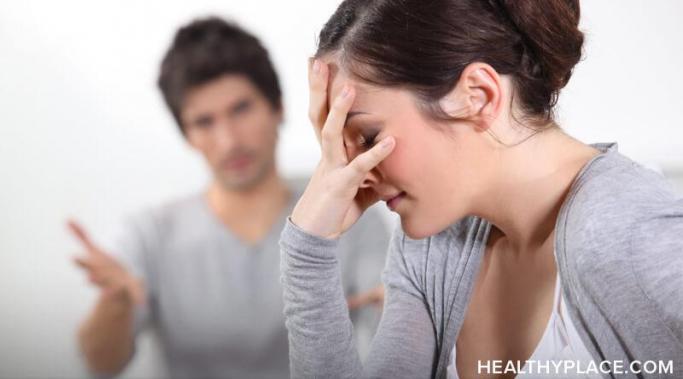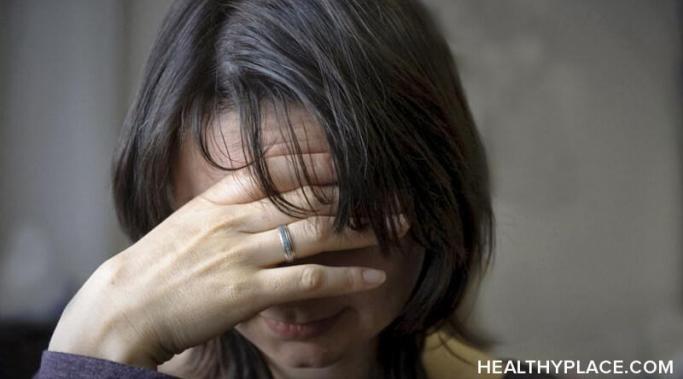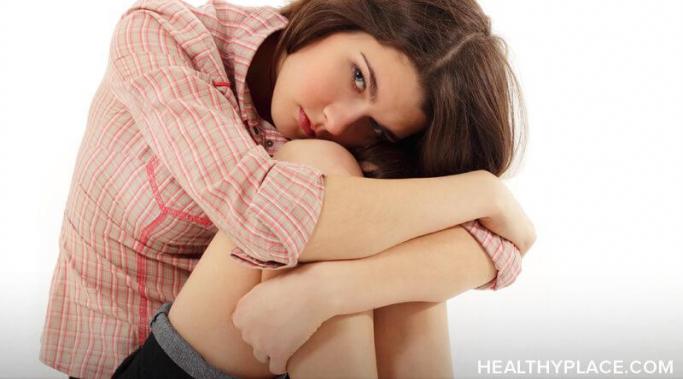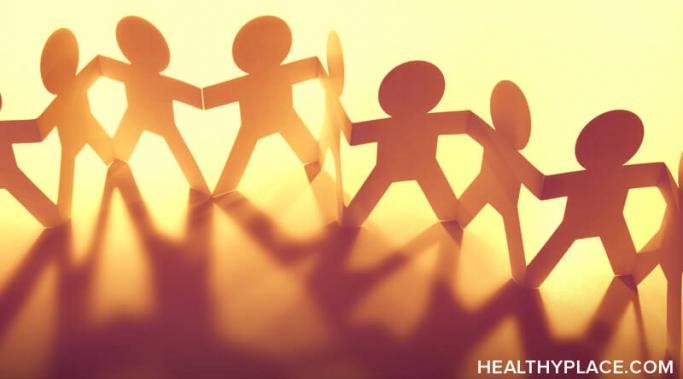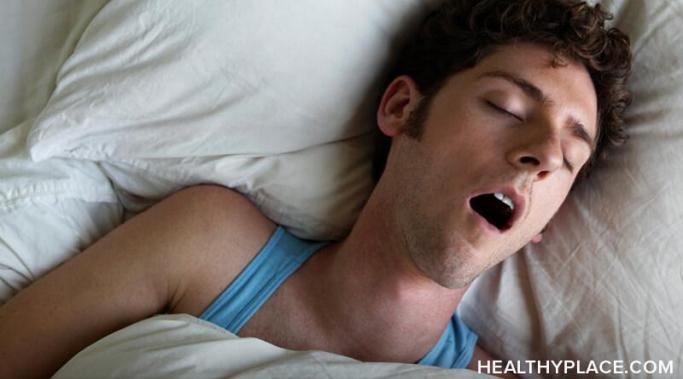I thought for a very long time that I could outthink bipolar disorder. I thought, if bipolar disorder is in my mind, then my mind can defeat it. I thought that if I just read the right book, learned the right coping skill or understood the right philosophy, I could outthink the bipolar disorder. And this is not an uncommon feeling. It's one of the reasons that people refuse medications or go off their medications -- whether they express it in those words or not. People think -- errantly -- that bipolar disorder is all in their head, and so their head can fix it.
Coping
It's hard to look forward with bipolar disorder sometimes. Sure, if you happen to be hypomanic, or manic even, looking forward might make you feel great. You might feel like your hope is boundless and your life is limitless. If, however, you are in a depression, or even if you're euthymic (not in a bipolar mood episode), you might find looking forward with bipolar to be very hard indeed. I'm here to say, though, while it can be hard to be positive about the future with bipolar, it isn't impossible to see a glimmer or two on the horizon.
Do you feel like you can't handle the holidays that are right around the corner? If you are in this boat, you aren't alone. I suspect this is going to be one of the hardest holiday seasons in years for many people and many families. However, if you have bipolar disorder, not being able to handle the holidays can be even worse than for the average person. Today, I'll be discussing what to do if you feel like you can't handle the holidays because you're overwhelmed or otherwise.
Have you tried (and maybe failed) to get your health boundaries respect in the past? If so, you know how tricky it can be. In my last post, I talked about setting health and mental health boundaries. I acknowledged their importance, particularly now, in the midst of a pandemic. Today, I want to talk about how to communicate with others such that they respect your health boundaries.
Health boundaries, including mental health boundaries, can save your sanity or even your life, especially in the times of COVID-19. Setting health boundaries with those we love -- especially over the holidays -- can be very difficult, but is also so very important. Read on to learn about how to set your own personal health boundaries.
I often feel helpless because of bipolar disorder. I know we're all supposed to be empowered and in-control of our own destinies, but those things are an illusion at best, and bipolar is excellent at reminding me of that. All chronic illnesses, and for me, bipolar specifically, go with feeling helpless.
Do you wake up sometimes and know it's going to be a bad day from the outset? I do. Sometimes before I put my feet on the floor, I know it's going to be a bad day. Now, I think, for the average non-sick person, this sounds like a self-fulfilling prophecy. In other words, if you think it's going to be a bad day, then it certainly will be. This is not the reality for a person with a chronic illness, though. Sometimes we know it's going to be a bad day. If you have this feeling sometimes, here's how to handle it.
Do you think you can deal with bipolar disorder alone? Do you think you can keep your bipolar a secret and just do what it requires by yourself? If so, you're not alone. Many people try, sometimes for years, to handle bipolar disorder alone. They do Google searches and online research about bipolar and its treatments and somehow that makes people think they can do it on their own. But I have news for you: you can't deal with bipolar disorder alone.
You're going to need to talk to people about your bipolar disorder. It doesn't matter what stage of the illness you are in -- just after diagnosis, deep into treatment or in remission -- you need other people to know about your mental illness. So let's talk about why you need to talk to people about your bipolar and how to do it.
There is a horrible relationship that people with bipolar disorder live with: bipolar affects sleep and sleep affects bipolar disorder. And neither one of them likes each other. It's like being followed around by a bickering couple that occasionally starts screaming at each other. I downright hate it. So let's take a look at how bipolar affects sleep and how sleep affects bipolar disorder (and you) and what you can do about it.

